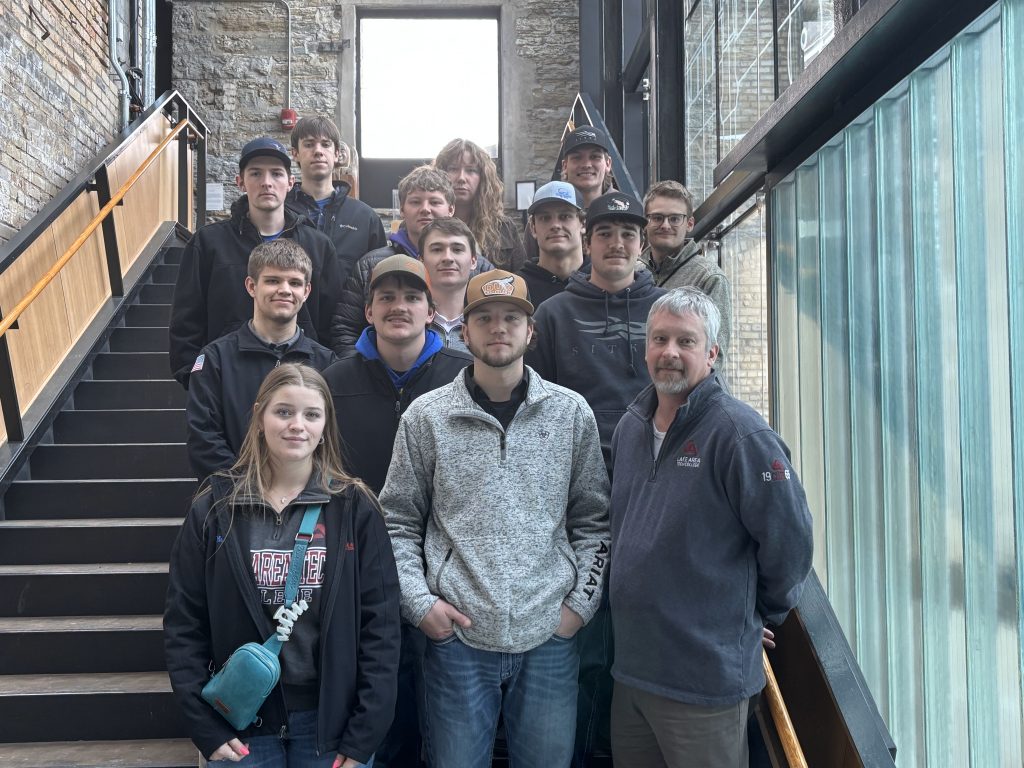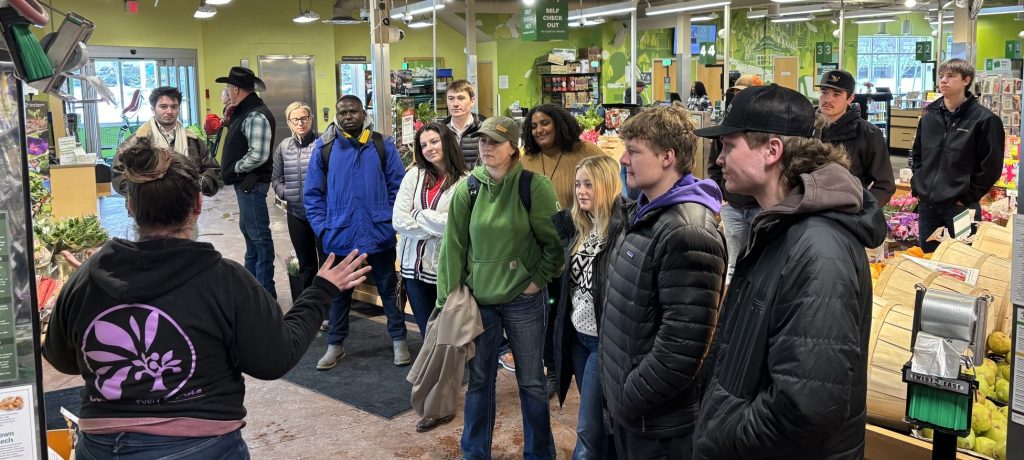College Students Learn About Cooperative Business Model During Farmers Union Conference
By Lura Roti

Fourth-generation farmer, Aaron Veldhuizen believes it is important for farmers to have an in-depth understanding of cooperatives.
“Agriculture thrives in many cases because of cooperatives, said Veldhuizen, who grew up on a cattle and crop farm. “Cooperatives gives farmers bargaining power when purchasing inputs. And by working together, collectively, they can also bargain for better prices in the world’s marketplace.”
Veldhuizen is in his last semester at Lake Area Technical College studying agriculture business and commodity merchandising. He is among a group of students who South Dakota Farmers Union sponsored to attend the National Farmers Union College Conference on Cooperatives held in Minneapolis.
Because many South Dakota family farmers and ranchers and their rural communities depend on cooperatives, cooperative education is among the focuses of South Dakota Farmers Union educational programming.
“Farmers Union helped start some of the first cooperatives in South Dakota. Today, they are commonplace so many may not understand their value,” explained Karla Hofhenke, Executive Director of South Dakota Farmers Union. “Before cooperatives, many South Dakota communities were without needed products and services because private companies didn’t see rural areas as profitable. By working together, rural citizens filled the need by creating member-owned cooperatives.”
During the conference representatives and farmers from long-established and emerging cooperatives visited with students about cooperative careers, leadership and development.
Students heard from representatives from Compeer Farm Credit, National Rural Electric Cooperative Association (NRECA), CROPP/Organic Valley, Northcountry Cooperative Foundation, and National Co-op Grocers, as well featured speakers from several universities. Students also visited several area cooperative organizations, including Seward Community Co-op, Riverton Housing Co-op, MY Credit Union, and REI Co-op.

“Students in South Dakota basically see one model of a co-op – their local grain elevator. By attending this conference, they get to expand horizons a bit,” said Jeff York, Cooperative Principles Instructor at Lake Area Technical College.
Commodity merchandising student, Seth Torstenson, appreciated learning about other types of cooperatives. “Last summer I interned for CHS cooperative in Gettysburg, so it was interesting to learn about other types of cooperatives,” Torstenson said. “It became obvious that at the end of the day, something all cooperatives have in common is people, their members are the most important focus of a cooperative. And making sure all members’ voices are heard.”
After college, Torstenson will work full-time for CHS. He will begin working in operations for the agronomy team, helping haul seed and unload fertilizer. It is his goal to work his way up to one day work as a grain merchandiser for the cooperative.
“You have to start somewhere and I know I have a lot to learn,” Torstenson said.
Learning something new every day is the reason Torstenson’s classmate Mackenzie Schweitzer, enjoys working for the Tabor Lumber Cooperative. Like Torstenson, after college Schweitzer hopes to work full-time for the cooperative that provides a variety of ag products and services to the rural agriculture community where she grew up.
“I like not doing the same thing every day. It is always something different,” Schweitzer said. “I also like the work I do at the cooperative because it is hands-on.”
Schweitzer, Torstenson and Veldhuizen were joined by classmates Estella Reynolds, Rochester, MN; Hunter Wientjes, Watertown; Seth Plucker, Canton; Jacob Ramlo, Brookings; Gavin Jacobs, Elk Point; Nick DesCamps, Brookings; Devon Schmitz, Elk Point; Trey Knox, Highmore and Kody Horner, Sioux Falls. Schweitzer is from Tabor, Torstenson is from Watertown and Veldhuizen is from Pipestone, MN.
In addition to Lake Area Technical College students, Chaz Blotsky from Mitchell Technical College also attended as well as students from post-secondary schools from several other states attended.
“In addition to learning from the presenters, one of the biggest things for me was making connections with other students and learning from their perspectives on cooperatives,” Veldhuizen said.

